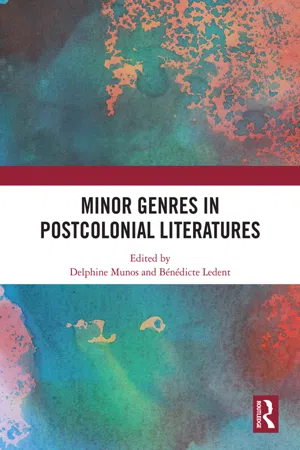The “state of the nation” and its thematization in the country’s crime fiction provides the focus of the present article, although it is to be feared that the crimes plaguing the real world of contemporary South Africa and those described in fiction will sometimes prove to be a good deal more heinous and offer far less occasion for humour than those referred to in the security agent’s amusing joke.
During the apartheid era, crime fiction was seldom considered a major genre in South African literature. Most writers, black or white, devoted their energies primarily to opposing apartheid. What they wrote was not of course usually crime fiction. Indeed, to be writing work in such a supposedly lighter vein which did not in some manner engage with the “system” was viewed by some as politically somewhat irresponsible. As the Afrikaner crime writer Deon Meyer has suggested, in the apartheid era,
you could not really have police crime thrillers [ … ]. It is very difficult to have a cop as a hero if he works for an evil regime. You don’t tend to find crime thrillers in any community where a “non-democratic” situation prevails. (quoted in Groenewald 2007, n.p.)
Mike Nicol (2014) agrees: to have made your protagonist a policeman under apartheid, he suggested, would be “akin to sleeping with the enemy” (n.p.).
Nicol thus inclines to the view held by most commentators that “not much has happened in South African crime fiction over the last five decades” (le Roux 2013, 136). Margie Orford (2013a) has also suggested that “prior to 1994, apart from a couple of exceptions, there was no actual ‘genre’ crime fiction” (220). I, too, shared that impression, believing that, beyond Wessel Ebersohn and James McClure, there were really no other crime writers in apartheid South Africa.
This view has now been disproved by Elizabeth le Roux in a 2013 article in which she looks at crime fiction in South Africa from the perspective of publishing history. This is not an easy task since the local market was small during apartheid and much was published overseas. Le Roux (2013) has unearthed such forerunners as Ernest Glanville and Bertram Mitford whose works, she notes, “are now almost completely unknown” (139). Mitford, she believes, is “a good contender as the first crime writer in South Africa”, and she counts his 1899 novel The Weird of Deadly Hollow: A Tale of the Cape Colony as “the first true South African crime fiction” (139).
Since 1994, the year of South African liberation, everything has changed in the world of crime fiction. The crime novel has become what Michael Titlestad (2012) describes as a “post-apartheid publishing phenomenon” (691). Other writers and critics concur. Karina Szczurek declared that “the crime genre is taking the literary scene by storm”.1 Christopher Warnes (2012) remarks that “the number of crime novels [ … ] is starting to assume the ‘epidemic proportions’ some believe characterise actual crime rates in that country” (981). Mike Nicol welcomes what he calls the “explosion” of crime fiction in South Africa since the 1990s, which he puts down to the greater readiness of publishers to bring out local work matched by a greater willingness of the public to read it. It is also noteworthy, as Deon Meyer (2013) remarks, that crime fiction is, for the first time, being produced by “writers of all ethnicities” (7). It would seem, therefore, legitimate to wonder whether South African crime fiction may any longer be regarded as a “minor” genre.
In this article I am going to follow Julian Symons’s (1993) principle expressed in his standard work Bloody Murder that “crime fiction is a hybrid, and that too much categorization is confusing rather than helpful” (258). I shall also bear in mind Matzke and Mühleisen’s (2006) wonderful coinage “postcolonial genre-bending”, which they use to describe the manner in which “many authors have [ … ] broadened the theme of investigation to address issues of community, beliefs and identity constructions across geographic and national boundaries, including gender and race relations” (5). This is a notion Margie Orford seems to espouse in her own, feminist-oriented work when she suggests that “crime fiction is [ … ] a flexible genre that can be bent enough out of shape to tell women’s stories too” (2013a, 225).
It has been argued that “the phenomenal popularity of crime fiction in South Africa demands serious scholarly critical attention” (“South African Crime Wave” 2013, n.p.), and indeed there are signs that this is beginning to happen. A number of publications have recently appeared, most notably Christine Matzke and Susanne Mühleisen’s Postcolonial Postmortems (2006), which has been described as “one of the most influential publications in the last decades” (Naidu 2013, 124), and Anja Oed and Christine Matzke’s Life is a Thriller: Investigating African Crime Fiction (2012). Both these volumes include essays on South African crime fiction. More recently there have been special issues of the Journal of Postcolonial Writing (2013) and of Current Writing (2013) on South African crime fiction, as well as symposia at Yale University (“Crime and its Fictions in Africa”, 2012) and Cambridge University (“Writing Crime”, 2013).
As an outsider I find that the manner in which South African crime fiction addresses contemporary social issues of great moment, while by no means the only quality of such writing, is one of the prime sources of interest it holds for the reader. This was certainly true of the few authors who wrote crime fiction during the apartheid era, and it holds true today. Two early examples of the extent to which South African crime novelists incorporated a political statement in...
